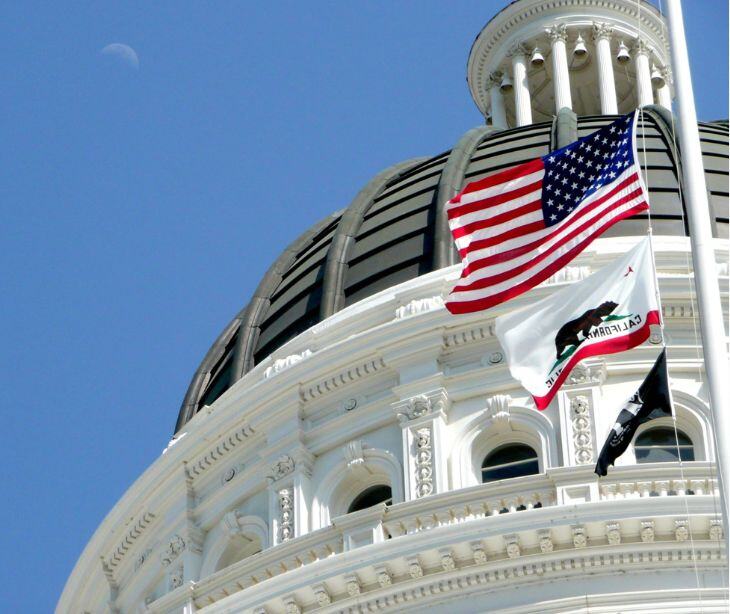3 min read
Ted Cruz blocks bill that would expand data privacy to all Americans
Farah Amod
Oct 17, 2025 1:52:40 PM

Sen. Ron Wyden's proposal to extend privacy protections to the public was halted after a sole objection from Sen. Ted Cruz.
What happened
Senator Ted Cruz (R-TX) has blocked the passage of the Protecting Americans from Doxing and Political Violence Act (S.2850), a bill introduced by Senator Ron Wyden (D-OR) directed at extending data privacy protections to every individual in the United States. The bill sought unanimous consent in the Senate but failed due to Cruz’s objection.
The legislation would have expanded existing bipartisan provisions that currently shield lawmakers and public officials from having their personal data sold by data brokers. Wyden’s proposal would have extended those same protections to the general public, including protections against the sale of home addresses and other sensitive personal data.
Going deeper
Wyden argued that safeguarding everyone, not just elected officials, is needed to protect individuals from violence, stalking, and other threats. He stated that equal protection would also benefit US military personnel and intelligence officers.
The bill directly addressed the role of data brokers, companies that compile and sell vast quantities of personal, financial, and location data harvested from phones and other internet-connected devices. This commercially available information is often purchased by governments without warrants and can also be used for malicious purposes, including doxing. One recent incident cited involved a shooting in Minnesota in which the alleged killer reportedly used brokered data to locate two lawmakers.
Cruz objected, raising concerns that the bill could interfere with public awareness about the location of registered sex offenders. However, legal experts pushed back, noting that the bill would not alter federal or state sex offender registries, which are publicly accessible and mandated by law.
What was said
Wyden, addressing the Senate floor, said, “Members of Congress should not receive special treatment. Our constituents deserve protection from violence, stalking, and other criminal threats.”
Cruz countered that he supports expanding protections “as is feasible,” but claimed the current proposal could have unintended consequences. Daniel Schuman, executive director at the American Governance Institute, disputed Cruz’s concerns, explaining that the bill includes explicit exemptions for law enforcement, the press, and public registries such as sex offender databases.
Cruz also blocked a second bill, S.2851, which would have extended similar protections to state officials, their staff, and survivors of domestic violence and sexual assault.
The big picture
According to Tech Story, Wyden’s stalled proposal reflects a deeper issue: the United States still has no comprehensive federal data privacy law. Unlike Europe’s General Data Protection Regulation (GDPR), privacy protections in the US remain fragmented, with only a handful of states passing their own laws while others have none at all. Consumer advocates warn that this patchwork approach leaves millions vulnerable in an era where nearly every action, from GPS tracking to online browsing, generates personal data.
Wyden has long argued that privacy rights should be universal, not privileges reserved for lawmakers and federal employees. Extending these safeguards, he says, would not only protect ordinary Americans but also shield undercover officers and intelligence personnel whose identities could be exposed through commercial data broker services.
FAQs
What is doxing?
Doxing is the act of publicly revealing someone’s private or identifying information, such as their address, phone number, or workplace, without consent. It’s often used to harass, intimidate, or endanger the victim and is considered a serious privacy violation.
What exactly is a data broker, and how do they get personal information?
Data brokers collect and aggregate personal data from sources like mobile apps, online purchases, public records, and internet activity, then sell that data to marketers, governments, or other buyers.
Why are lawmakers currently protected from data brokers, but the public isn't?
Federal provisions have been passed in recent years to protect elected officials due to rising threats, but no equivalent national law exists to protect private citizens, despite similar risks.
Would Wyden’s bill have stopped public registries like sex offender lists?
No. The bill included explicit language to preserve existing public registries and ensure law enforcement can still share information with at-risk communities.
Can data from brokers really lead to violence?
Yes. In recent incidents, attackers have used brokered personal data, including home addresses, to locate and target individuals, including public officials.
What happens next for this bill or similar privacy proposals?
Without unanimous consent, the bill can still be brought forward through regular Senate procedures, but that process is slower and requires more votes, making its future uncertain.


%20-%202024-10-11T061116.402.jpg)

